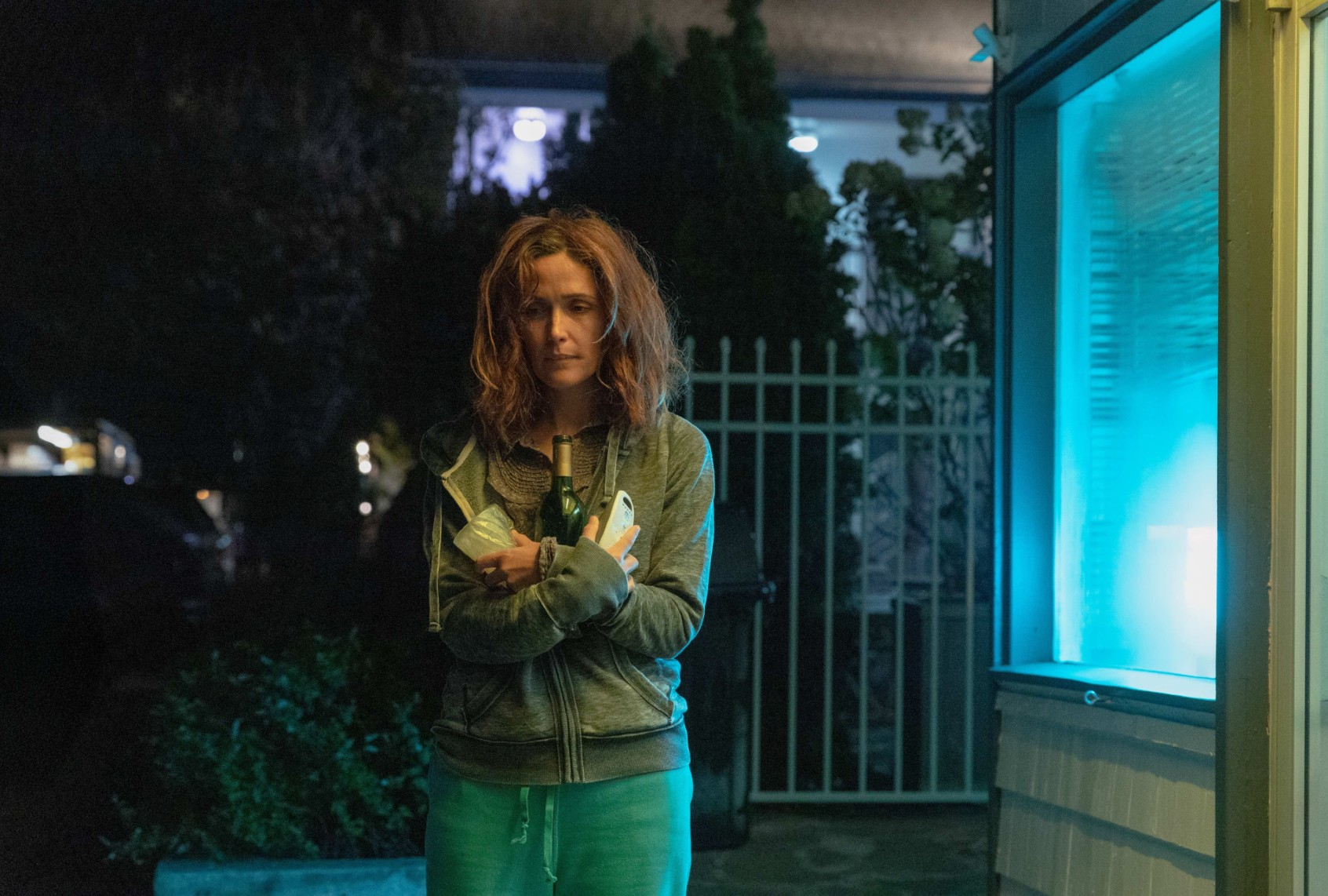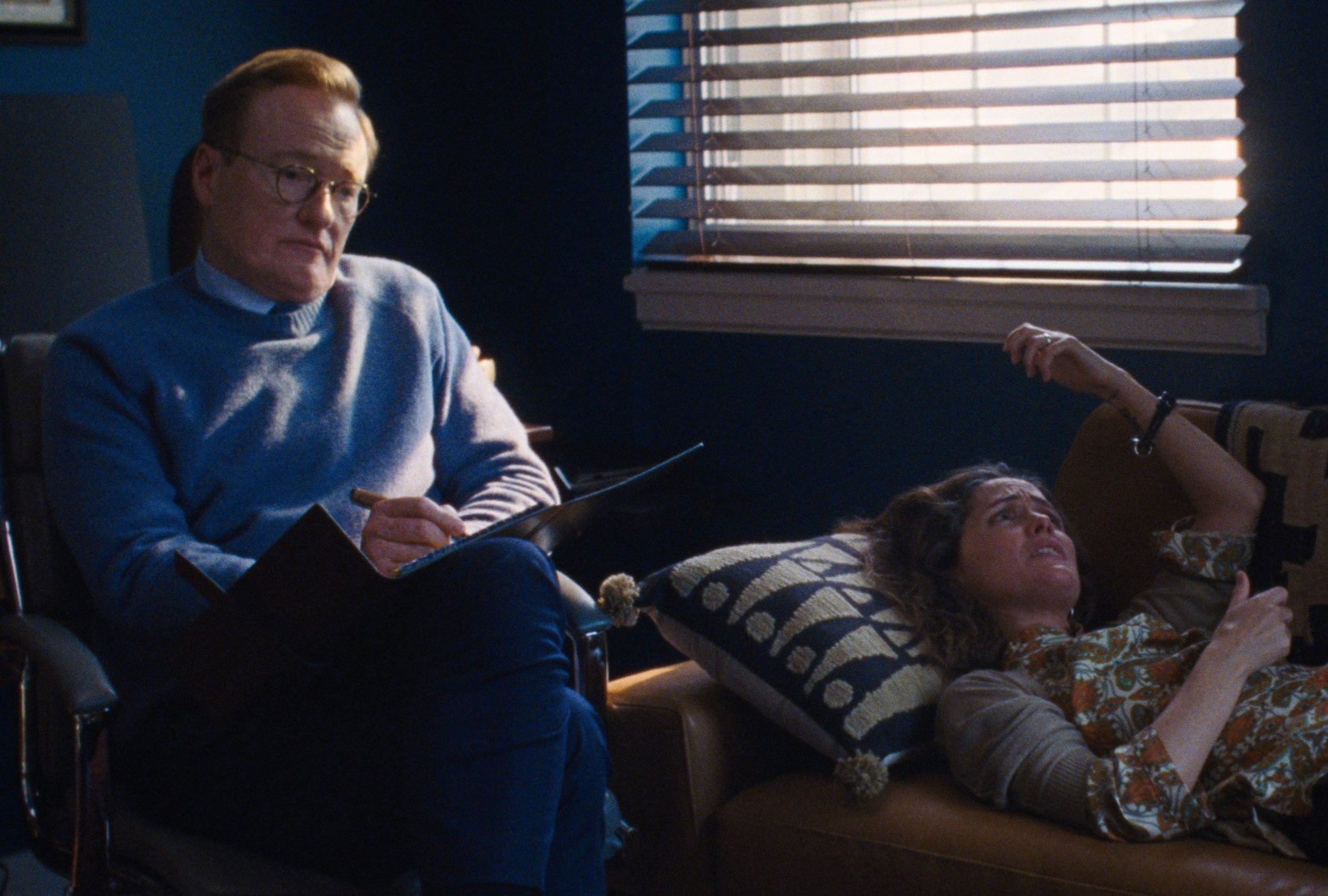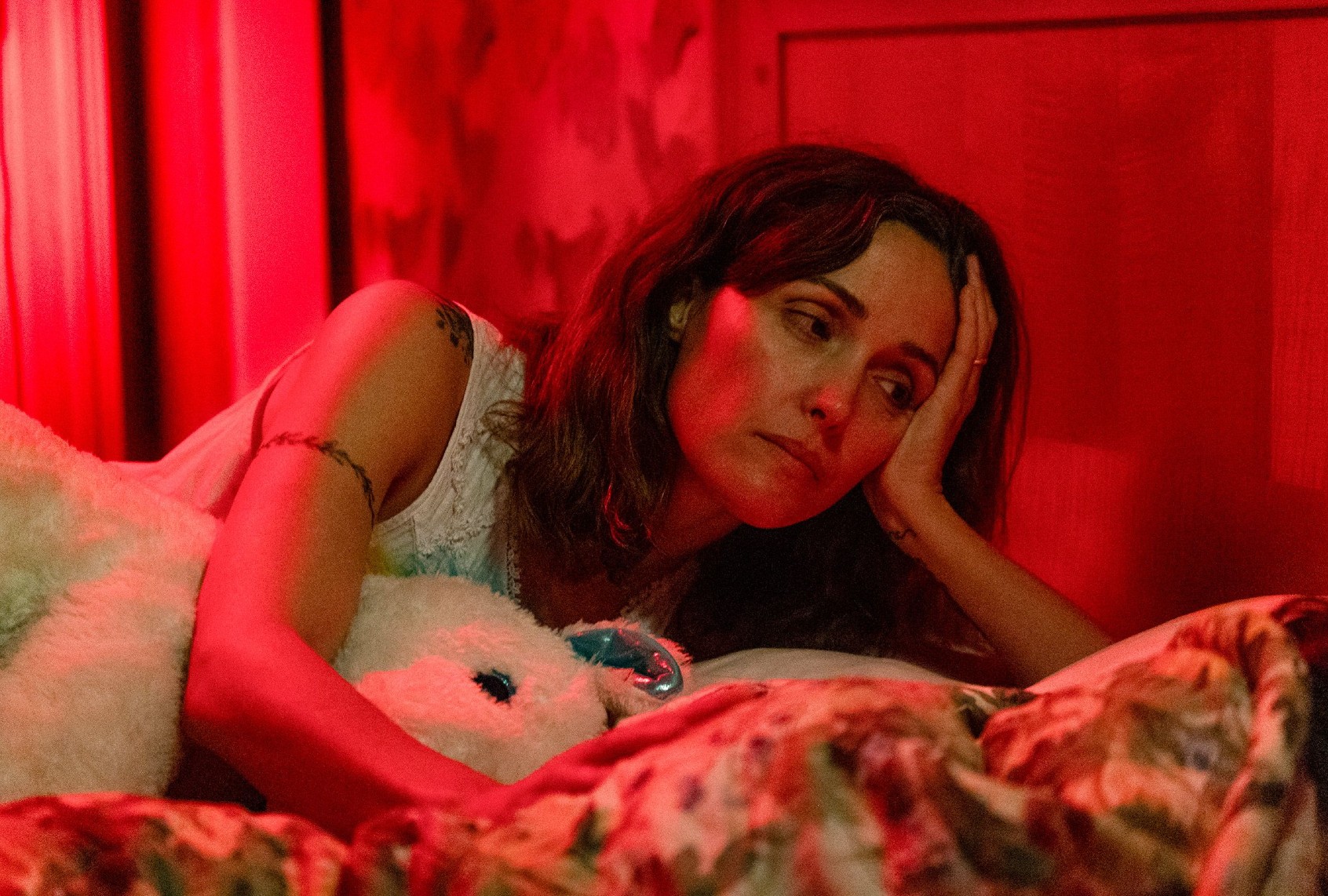When something in culture becomes too monolithic to ignore, the logical next step is to parody it. The more an image proliferates in the world, the more nagging it is, and naturally, our brains twist these repetitive ideas into humor to blunt their obnoxiousness. Take one of my favorite recent examples: The wine mom, a 2010s and early-pandemic archetype born from the common idea that modern mothers were tasked with juggling so much that they seemed to have a glass of white wine hermetically sealed to their palms. The image is partially the result of social media platforms like Facebook encouraging users to post their everyday mundanities, such as winding down with a glass of wine at the end of the night. Soon, active Facebook users became their own market, and niche wine brands began skewing their advertising and packaging toward young mothers. Television sketch parodies, along with op-ed responses about how we normalize addiction, weren’t far behind. Then, the wine mom moved into her final, ironic stage: the surrealist meme, a dadaist take that almost brings the trope back to its real-life roots. My most treasured favorite depicts a glass of white wine, filled to the brim, with the original caption rearranged (with intentional grammatical errors) to read: “Five minutes after getting home from work, dog are screaming, kids won’t stop barking, husband needs to be cooked, laundry is screaming, laundry getting on my last nerve, and I’m just like…”
Writer-director Mary Bronstein’s sophomore feature, “If I Had Legs I’d Kick You,” screening at this year’s New York Film Festival and rolling out in theaters Friday, often feels identical to the surrealist meme stage of coping, where we’re forced to embrace the absurdity of our lives, remix it and regurgitate it in its most peculiar form to avoid a full break from reality. Bronstein’s gnashing lead character, a harried mother named Linda (Rose Byrne), could slot perfectly into that abstract wine mom meme, and not just because she enjoys a chilled bottle of cheap vino. As a child therapist tells her at the film’s outset, during a joint session with Linda’s unseen, unnamed daughter (Delaney Quinn), “Perception is reality.” A mother’s tasks are innumerable and nonlinear; dinner has to get underway just when the laundry has to be transferred to the dryer. While loading the machine, the doorbell rings. Five minutes later, the cotton clothes are shrinking in high heat and the rice is burning on the stovetop. All these chores, errands and responsibilities are simple to schedule on paper, but in practice, unforeseen circumstances ensure that chaos reigns. The perception of turmoil bleeds into reality, and suddenly, the kids won’t stop barking and the laundry is screaming. Pop the cork and fill the glass to the top.

(A24) Rose Byrne in “If I Had Legs I’d Kick You”
In motherhood, the margin for error is airtight. Mothers aren’t expected to be human, nor even superhuman. Often, women are expected to give up their humanity in service of their role as a mother, meaning that any mortal mistake can be twisted into a damning sin.
Though her film flirts with surrealism, Bronstein carefully maintains a sense of truth as Linda scrapes past a never-ending pile of obstacles, trying to claw her way free before she’s buried alive. The movie rarely stops to survey the field, and instead keeps plowing forward with Byrne behind the wheel, delivering a raw, emotionally complex performance that’s more honest than intentionally provocative. Like the hollowing turns from Gena Rowlands in “A Woman Under the Influence” and Jennifer Lawrence in “Mother!,” Byrne’s searing portrayal of matriarchal duty at all costs is abrasive and uncomfortable. With barely any time offscreen, Byrne has the opportunity to flit between monstrous and tender, turning in what may very well be the year’s finest performance in its most singularly affecting film. More moving than maudlin, “If I Had Legs I’d Kick You” understands how nightmarish it is to juggle love and living in the modern age, when simply surviving is a task that requires all of our energy.
After their emotional therapy session, Linda and her daughter reward themselves with some pizza — though her daughter would prefer just crust and tomato sauce, no cheese. Though many kids aren’t without their picky eating habits, the child’s fussiness stems from a rare eating disorder, leaving her underweight and requiring a feeding tube that Linda must monitor daily. On top of worrying about her daughter’s health, Linda spars with the therapists and fellow moms at her daughter’s treatment center in between taking clients at her psychotherapy practice, which she shares with her own therapist (Conan O’Brien). To top it all off, Linda’s husband, Charles (Christian Slater), is away for work for an extended period of time, meaning she’s dealing with all of this on her own. Linda’s either losing her head or trying her best to keep it. And when every cell phone vibration is liable to drive you up the wall, the last thing you need is a burst pipe and a giant hole in your ceiling. But you know what Murphy’s Law says.
With her apartment a flood zone and her landlord slacking off on the maintenance, Linda and her daughter are forced to live at a nearby hotel. Removed from the comforts of home — one of the last elements of consistency in her constantly shifting life — Linda is without proper refuge. Ever since her daughter was born, stability has been snatched out from under the two of them, and, as the doctors are so quick to frequently remind Linda, stability is necessary for suitable recovery. Now, she’s a mom on the edge, a woman resigned to life’s fringes, where she must tiptoe around live grenades so as not to make anything worse. There is no option other than to relegate herself to this turmoil. After all, she technically chose this life, elected to be a mother no matter the hardships. And when women make such significant, life-altering decisions, expressing anything short of joy and gratitude is cause for shame. The margin for error is airtight. Mothers aren’t expected to be human, nor are they expected to be superhuman, though one can see why mommy bloggers like to use that term for its more positive connotation. Often, women are expected to give up their humanity in service of their role as a mother, meaning that any mortal mistake can be twisted into a damning sin.

(A24) Conan O’Brien and Rose Byrne in “If I Had Legs I’d Kick You”
While many actors are good enough to transcend their occupation, Byrne’s plagued mother — who swallows her regret and exhaustion until she chokes on it — is so believable that her turn feels less like acting, and more like a tangled gnarl of fears that must be excised so a performer can keep on living.
Bronstein’s screenplay is knife-sharp, exploring this impossible reality with wit and full assurance. And though the minutiae of Linda’s disarray can be quite humorous, the film’s impeccable sound design and the rate at which Bronstein heaps new challenges onto the characters create a claustrophobia cleverly mimicking the creeping panic Linda experiences. “If I Had Legs I’d Kick You” is not for the faint of heart. But, then again, neither is motherhood; neither is being an adult; neither is getting out of bed every day and seeing what new horrors might await once we leave the house. Sometimes, the terror finds us anyway, crashing through our ceiling and landing on our plate just as we were remarking that it was looking a bit full.
In Byrne, Bronstein finds the ideal muse, a sincere and powerful actor capable of transforming this harsh character into a picture of human behavior. No one actor is more immediately equipped to bring this role as much compassion as Byrne does. And while she’s succeeded in both comedy and drama, the droll, aching combination of the two that the film taps into isn’t far from Byrne’s underrated, quietly stunning three-season Apple TV+ series, “Physical,” in which she played a woman who similarly collides with society’s expectations of perfection. Here, Byrne races past the confines of streaming television, able to operate at a 10 from the film’s very first frame and hold that potency until its striking final shot. While many actors are good enough to transcend their occupation, Byrne’s plagued mother — who swallows her regret and exhaustion until she chokes on it — is so believable that her turn feels less like acting, and more like a tangled gnarl of fears that must be excised so a performer can keep on living.
Funnily enough, only a film this forthright can have such power. Bronstein and Byrne’s dual honesty is as affecting as it gets. Both Linda and her daughter find themselves apologizing for things they can’t control, promising to each other that they want to get better — to be better. It’s just so unimaginably hard. There are holes in the ozone layer, in our ceilings and in our hearts. Sometimes it feels as though, if we take one wrong step, we’ll be swallowed up by one of them. How can we solve any of this when we’re just people? Bronstein’s film doesn’t have the answer, but it is willing to ask so many of the impossible questions that we spend our days dodging. And in a life where nothing is ever promised and every day feels like a battle, a little preparation for the fight goes a long way.
Read more
about films depicting the complexity of motherhood


